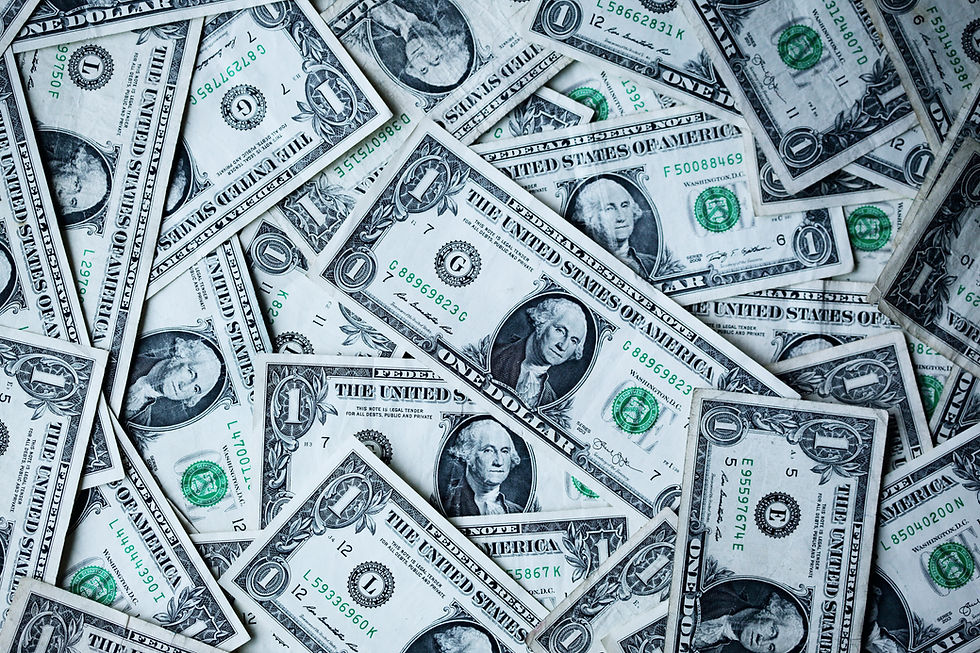Consumerism: How to Feel Rich
- n1003272
- May 16, 2022
- 4 min read
Consumerism is people's need to buy more items. Items that will not bring you any long-lasting happiness. So why do people consume so much?
The answer lies in what motivates consumerism: Capitalism. Capitalism is an economic system that is only concerned with profit. The only thing that is lacking in a capitalist society is capital. Therefore businesses and people alike are always searching for more.
The need for money leads to the worshipping of the rich and the way they live their lives. People want to be rich and live those types of lives too. Money might not be everything but the lack of it can determine the type of life a person can live. Capitalism and the need for money create a need to consume in order to look and most importantly feel rich.

The harmful nature of Capitalism and Consumerism
By nature capitalism only values capital, thus those that have lots of it are able to stand at the top of a capitalist society. Excessively hoarding wealth is the only way for a person to become rich. However, if hoarding wealth is the only way to be rich then how does it promote consumerism?
People all over the UK spend hundreds of pounds each day on the 'fast' industry: Fast food and fast fashion. These industries have led to extreme consumption in our society. The reason for this is profit. No one can hoard wealth without earning a profit. Therefore they must force people to spend money by trading it for value.
Value can be communicated in a lot of ways but is mostly done through sales and marketing,
The 'Fast' industry however communicates value through low prices. Low prices lead to more items being bought. Take the fast fashion industry for example. It is able to provide people with cheap and stylish clothing. A top from SHEIN can easily cost £3, or cargo bottoms that sell for £10 at Primark.
The cheapness of these items removes the labour value that was necessary to create these items. By reducing the labour value of items business owners are able to trick people into buying more items and thus spend more money than they usually would. Capitalism enforces the ideal of richness which can be felt by consuming a lot of items. Businesses are essentially exploiting the feeling of richness to make a profit.
Feeling Rich
The consequences of businesses exploiting the feeling of richness to earn a profit are great. Firstly it creates a mental gap between the cost of the item and the cost of labour. For example, in the Fast fashion industry, a hoodie can cost £10 from retailers such as Boohoo. However, that hoodie was most likely made in another country where the minimum wage is lower than in western countries.
This allows business owners to make these items cheaply by paying people wages that would be considered unethical in western countries. Additionally, this then skews people's perception of how much it actually costs to make a hoodie. Most people would scoff at the price of a sustainable hoodie believing that it is overpriced.
The cheap production of items through harsh and unfairly compensated labour allows people to buy many items at low prices whilst satisfying the feeling of consumption which in turn makes people feel as if they have the same level of abundance that rich people in society do.
Another example is the fast-food industry. Here the exploitation is with how the animals are treated. In order to produce enough food to sell to their millions of customers worldwide, fast food chains have to cut corners by packing animals in small cramped spaces in order to allow them to grow big enough to procure enough meat from them.
Not only does this deny cattle any form of decent life but it also produces excessive waste. This is not only caused directly by fast-food chains. Similar to fast fashion the cheap price attached to food items creates a mental gap between the perceived value of food and its actual value most likely leading to even more domestic food waste. Domestic food waste in turn is the largest contributor to food waste globally:

Thought process of consumerism
All of this isn't to imply that it is the individual's fault for consuming so much. That would put far too little blame on the structural factors that convince people into consumerism. Additionally, capitalism is most definitely not the only structural factor at fault for consumerism.
Most importantly, morality isn't exclusive to the rich. Fast fashion and fast food industries exist and thrive because of the economic inequality that our current capitalist society enforces. The large majority of people simply can't afford a £40 sustainable hoodie even if they aim to wear it for the next decade.
It is however important for people to do the work to deconstruct their own consumeristic habits in the hope that eventually enough people will understand what consumerism is and the effects it has on society and our planet.
Comentários